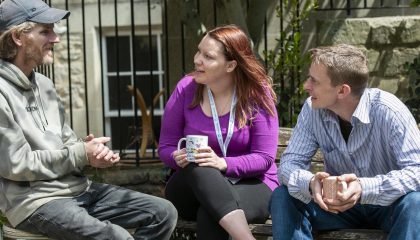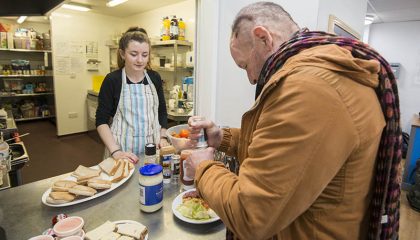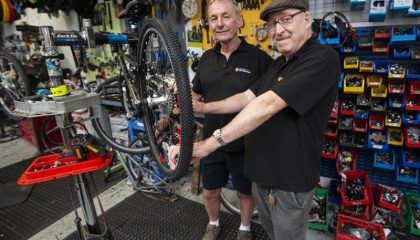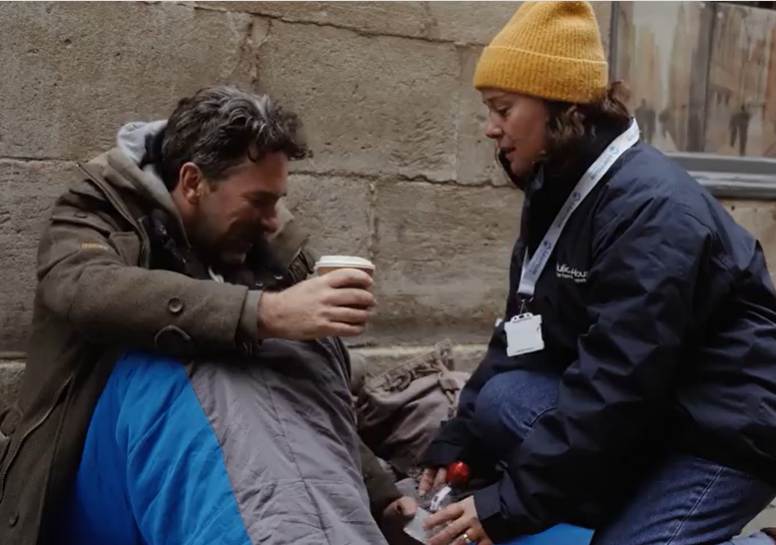
As we read and hear about the unemployment rates rising in the UK and surging towards their highest in three years, the need for Julian House to provide employment support to the long-term unemployed and disadvantaged is needed now more than ever.
During lockdown many of the ways we provide our employment support were forced to close, or, operate at a reduced capacity. As our Build-A-Bike courses are starting to return and our employment support is increasing we ask our Employment Support Lead, Sandra, how the projects looked before lockdown and how they are now returning to increase caseloads.
How does the Employment Support project help?
The Employment Support and Build-A-Bike courses are open to people who have a history of; homelessness, substance or alcohol misuse, mental health issues, domestic abuse, an offending background or long-term unemployed.
All clients are offered 1-1 Employment Support sessions alongside the Build-A-Bike and many come along for both.
All Employment Support sessions are 1-1 and clients can access these for a prolonged period of time, providing a ‘safety net’ of support because we recognise that circumstances can change, and support levels vary in response to this.

The sessions are up to an hour-long each time and in these we discuss the client’s goals for the future – whether this is training, employment, or more personalised. Together we form a plan of action and over time, will provide the client with a range of options and progression pathways. This is a collaborative approach, often working with other professionals to support the client in a multi-agency structure. We offer advice and guidance on matters such as:
- CV and cover letter writing
- Application forms
- Interview techniques
- Self-esteem strategies
- Signposting to external support agencies
The aim of the build-a-bike course (held at our Bike Workshops in Bath, Bristol and Trowbridge) is to provide those individuals at risk of social exclusion, with hands-on bicycle maintenance experience. The courses are run in groups of four and in all three workshops, offer both a morning and afternoon session, which last around two hours. The course lasts for six weeks, and on successful completion, the client is awarded the bicycle, giving them transport to work experience etc in the future. Each client receives a Julian House completion certificate for the Build-A-Bike course.
Many clients have then been able to access services and enter employment or training as a result of having their own method of transport.
Overall, we aim to provide a holistic approach to supporting our clients and support people in a way that suits their individual needs. Going forward we aim to develop a service that is both forward-thinking and proactive, in a World where things are changing rapidly.
Partnerships
In order to achieve this, we work closely with a variety of partner agencies who refer individuals to us. These include Job Centres, Supported Housing, Care Leavers Support, Mental Health Organisations, Probation, Substance Misuse services and Domestic Abuse services.
Who do you help?
We support clients aged 18 and above primarily, however, we can on occasion and depending on individual circumstances, work with young people aged 16-18.
Our unique selling point is to offer a consistent approach to support, meaning that clients will work with one Employment Support worker rather than having several – this helps to build trust and arguably improves outcomes.
How many people do you normally help a year and what do they tend to go on to do?
The number of clients varies across the workshops as do retention rates. In 2019 19 clients were supported on a Build-A-Bike course in Bath; in Bristol 40 clients were supported on either a Build-A-Bike course or Employment Support and in Trowbridge upwards of 60 clients were supported on either a Build-A-Bike course or Employment Support.
In Trowbridge, a significant number of clients go on to attend IT training, which we are able to offer in house by working in partnership with Wiltshire Family and Community Learning. We have previously also offered CSCS training, First Aid and English and Maths in the Skills Hub by collaboratively working with other educational and training providers.
After accessing these courses, what do participants go on to do?
Some clients will enter either part- or full-time employment and they can still access in-work support should it be necessary. Part of the Employment Support Worker role is to visit workplaces and liaise with employers if this is appropriate, however for many clients, the move into paid work is the point at which they exit the service.
We also support clients into volunteering roles, and in Trowbridge and Bristol have offered work placements for some individuals. These provide the opportunity to build on skills learnt on the Build-A-Bike course and to develop further knowledge and gain experience in a workplace.
How has this been affected by COVID and how are things working now?
Due to the nature of the roles, the Employment Support team were furloughed on 1st April and all services were thereby suspended. The Employment Support Worker in Bristol returned to work in September and has restarted sessions. Sadly, this post is currently vacant and there will be no physical Employment Support Worker presence in Bristol for the short term.
However, we will continue to process existing referrals for the course, and it is my hope that the courses will continue as planned. The Employment Support Worker in Bath returned to work at the beginning of October and the Build-A-Bike course will restart by late October. Due to social distancing challenges, we are unable to provide any face-to-face sessions but will be offering remote Employment Support sessions, although this is also challenging due to lack of technical capabilities of some clients.

All three Bike Workshops have seen a dedicated revamp to enable the team to adhere to all COVID guidelines and ensure a safe working environment for everyone. PPE is available for clients and feedback from the first client to undertake a Build-A-Bike session, was resoundingly positive. Due to social distancing measures we are only offering two places on each course which has halved our provision; this will be reviewed as things unfold.

As we have all newly returned to work, there will understandably be a period of readjustment as new procedures are trialled and feedback gathered to monitor the effectiveness of the new way of working.






